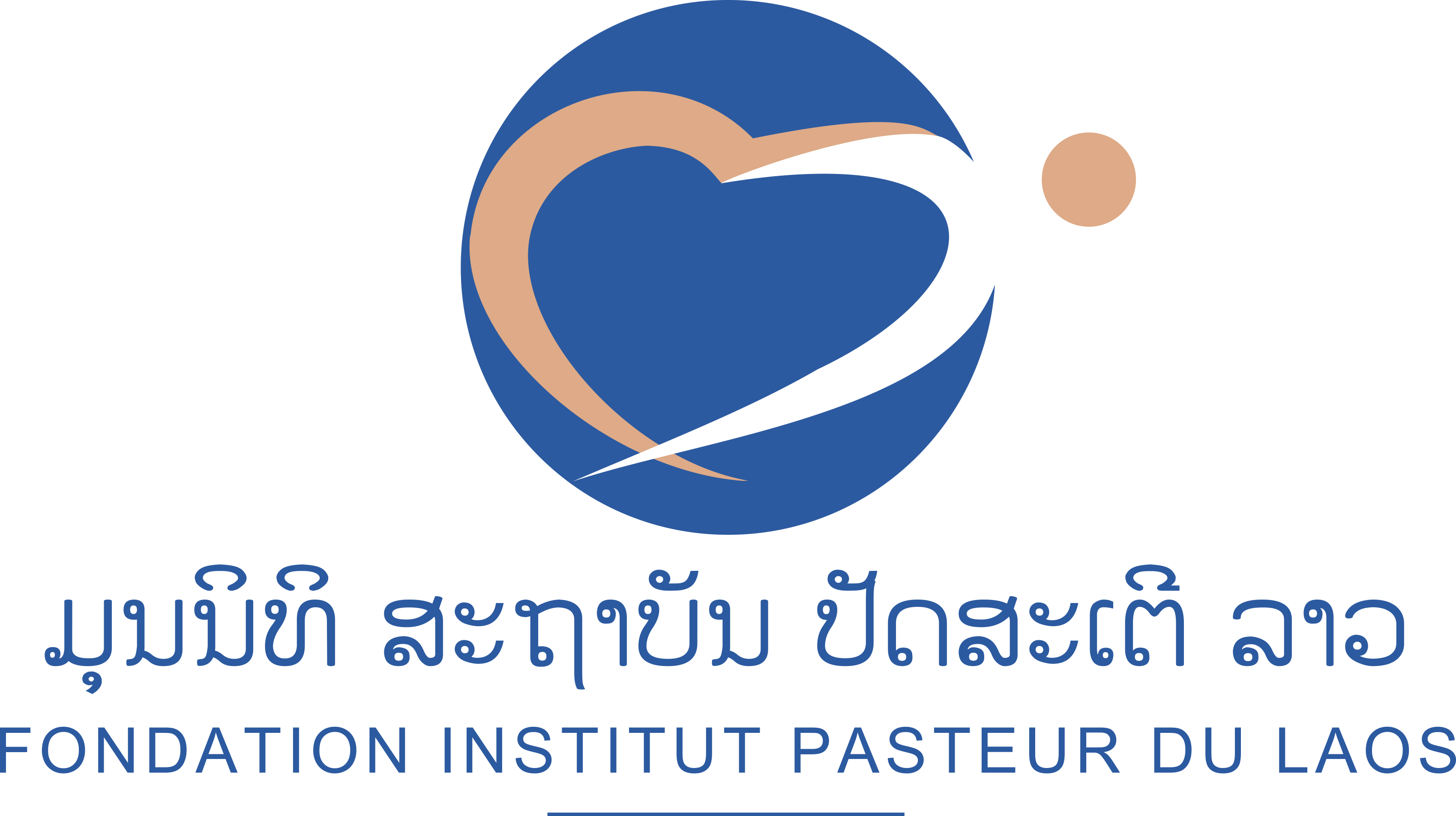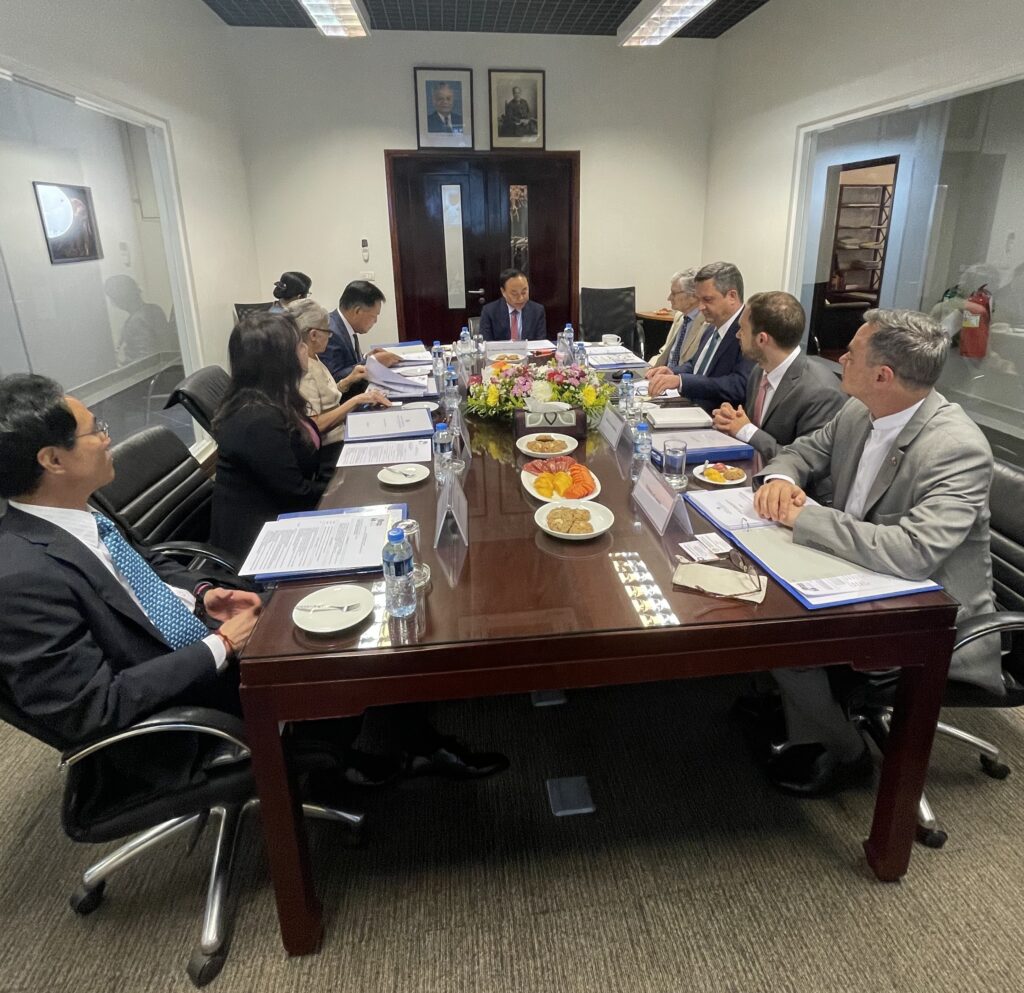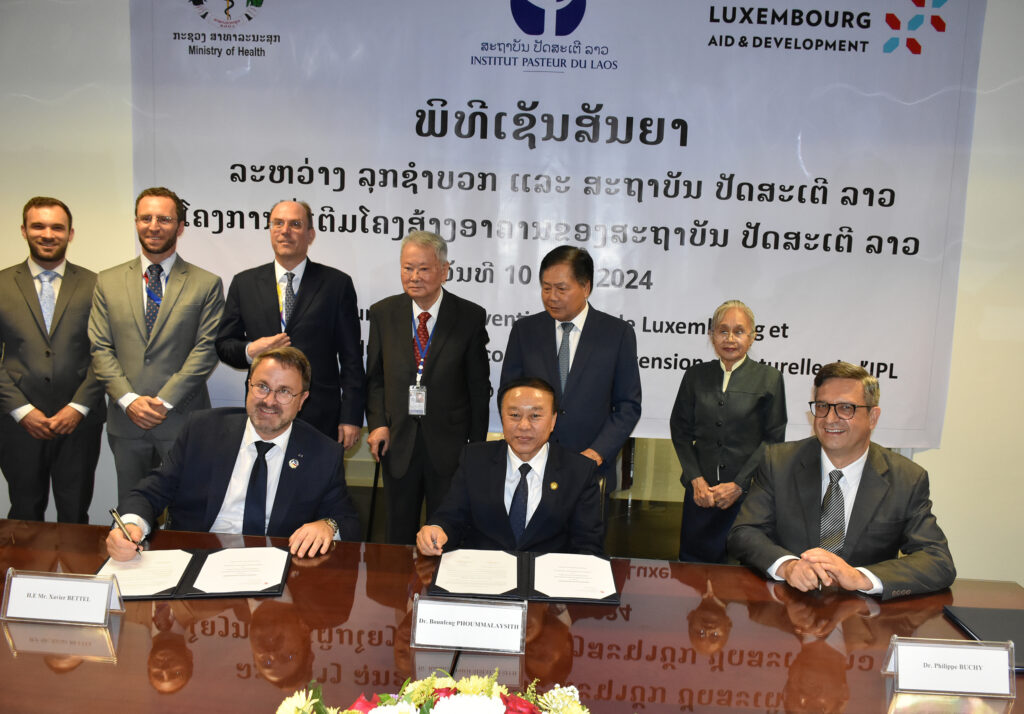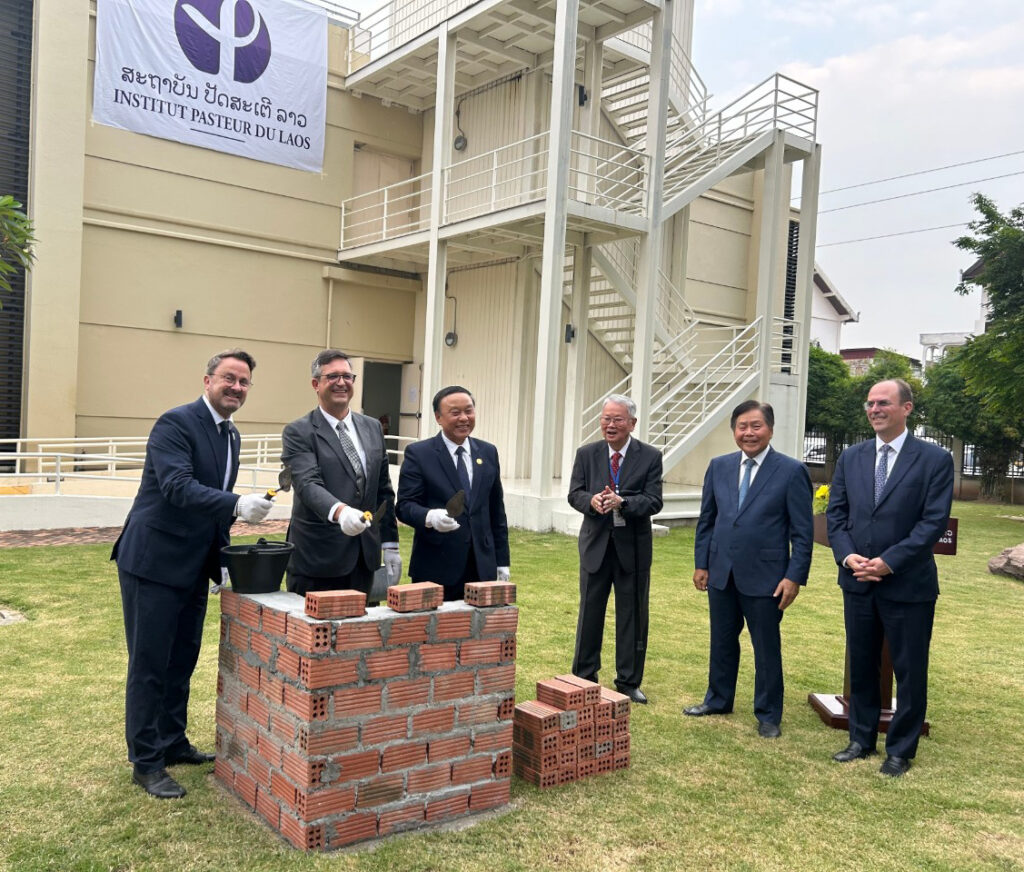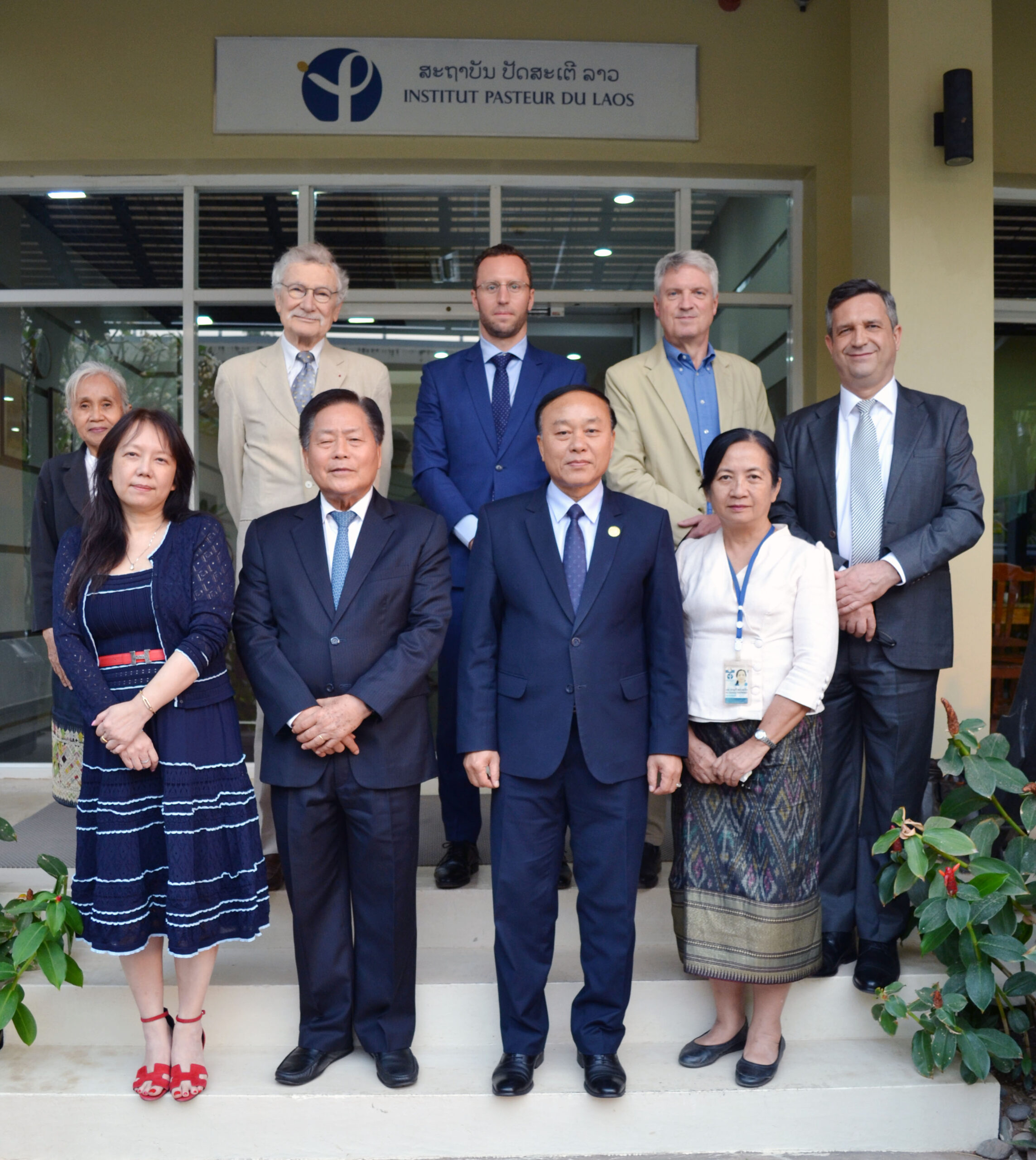Medical Virology and Rabies group 2023
Head of Laboratory: Dr. Cécile Troupin, PhD
Email:
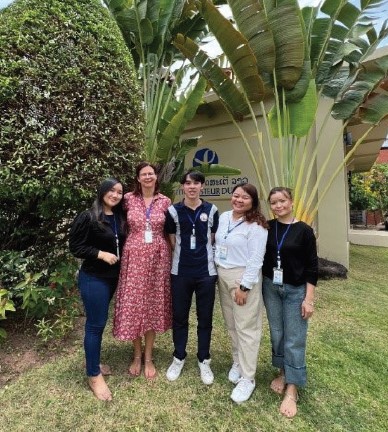
From the left: Souksakhone, Cécile, Kedkeo, Thonglakhone, Sitsana.
In June 2022 the Medical Virology and Rabies group was created at Institut Pasteur du Laos to continue some of the activities previously performed by the Arbovirus & Emerging Viral Diseases (A&EVD) laboratory. The Medical Virology and Rabies group contributes to the national arboviruses surveillance by analysis samples originating from a network of 22 hospitals in Laos. This group also performs COVID-19 diagnosis and supports the national surveillance of SARS-CoV-2 variants. In 2023, a research project on rabies also started.
Executive summary
Viral vector-borne diseases have occupied an increasing position among the list of emerging and re-emerging diseases over last decades and now represent a major health threat in South-East Asia. The arboviruses surveillance developed at IPL since 2012 is based on a network of 22 hospitals from 11 Lao provinces. This surveillance is recognized by the Lao national health authorities as a major tool for arbovirus diseases prevention and control.
In 2023, an important outbreak of dengue fever occurred in Laos with 30,751 suspected dengue cases including 18 fatalities reported until week 41. The serotype identification performed by the Medical Virology and Rabies group showed a switch in the predominant serotype circulation in the country. Indeed, in 2023 the proportion of dengue virus serotype 1 (DENV-1) identified in our samples decreased compared to 2021 and 2022 while the dengue virus serotype 2 (DENV-2) became the most predominant one. Moreover, differences in dengue serotypes dynamics were observed between the provinces.
Although no chikungunya virus (CHIKV) or Zika virus (ZIKV) infections were detected among the samples tested in 2023, a retrospective study identified 8, 20 and 21 CHIKV infections in 2020, 2021 and 2022, respectively. The genetic characterization of these viruses is ongoing.
In 2020, IPL became one of the front-line laboratories for COVID-19 diagnosis in Laos. In 2023, the Medical Virology and Rabies group maintained its support to the Lao health authorities by performing COVID-19 diagnosis and genetic characterization of SARS-CoV-2 variants. The implementation of next generation sequencing (NGS) at IPL allowed the early identification of the new variants in Laos, like the Omicron recombinant variants XBB in January 2023. The data generated significantly contribute to support the efforts of the Lao health authorities to control COVID-19.
Plain language summary
Viral diseases transmitted by mosquitos have been more frequently detected in the last decades. The surveillance of diseases such as dengue, chikungunya or Zika started at Institut Pasteur du Laos (IPL) in 2012. This surveillance system is recognized by the Lao health authorities as a major tool for the prevention and control of these diseases.
The relative proportion of the different dengue virus types that circulated in Laos in 2023 was different compared to the relative proportion of these viruses that circulated in 2021 and 2022. This could partially explain the increased number of dengue fever cases that were observed in 2023.
In 2023, no infection caused by chikungunya virus or Zika virus was detected.
Since 2020, IPL is supporting the detection of COVID-19 cases as well as the analyses of the various SARS-CoV-2 viruses, called “variants”. The results generated are important for the country to fight against this disease, as well as for the international health authorities to monitor COVID-19 worldwide.
Team:
Responsible of the group
Dr. Cécile Troupin, PhD
Junior Scientist (until September 2023)
Dr. Thonglakhone Xaybounsou, MD
Laboratory technician
Mrs. Sitsana Keosenhom
Mrs. Souksakhone Viengphouthong
Mr. Kedkeo Intavong
Trainee (Arboshield project)
Mrs. Chanthala Sengsoulisack
Mrs. Khanthaly Malounna
Project carried on in the lab:
+Arboviruses surveillance in Laos.
+COVID-19 surveillance in Laos.

